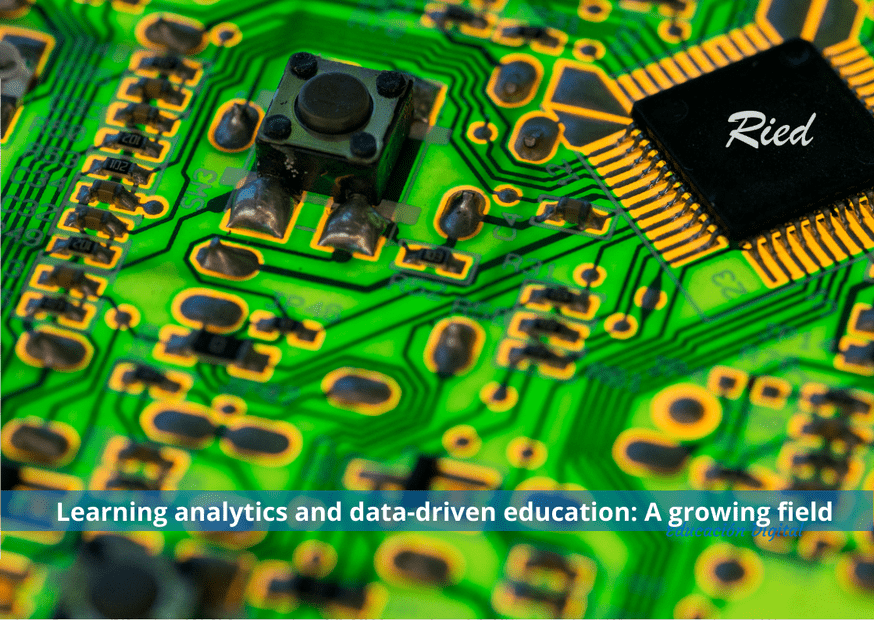Learning analytics and data-driven education: A growing field
DOI:
https://doi.org/10.5944/ried.23.2.27105Keywords:
learning analytics, educational technology, data-based education, data science, educational science, educational research.Abstract
The growing presence of digital mediation systems in most educational spaces —whether face-to-face or not, formalized or open, and at basic or lifelong learning levels— has accelerated the advance of learning analytics and the use of data in education as a common practice. Using digital educational tools facilitates the interaction between students, teachers and learning resources in the digital world, and generates a remarkable volume of data that can be analyzed by applying a variety of methodologies. Thus, research focused on information generated by student activity in digital spaces has risen exponentially. Based on this evidence, this special issue shows a set of studies in the field of data-driven educational research and the field of digital learning, which enriches knowledge about learning processes and management of teaching in digitally mediated spaces.
Downloads
References
Baker, R. S. (2019). Challenges for the future of educational data mining: The Baker learning analytics prizes. JEDM, Journal of Educational Data Mining, 11(1), 1–17. https://doi.org/10.5281/zenodo.3554745
Barocas, S., & Boyd, D. (2017). Engaging the ethics of data science in practice. Communications of the ACM, 60(11), 23–25. https://doi.org/10.1145/3144172
Buckingham Shum, S., Ferguson, R., & Martinez-Maldonado, R. (2019). Human-Centred Learning Analytics. Journal of Learning Analytics, 6(2), 1–9. https://doi.org/10.18608/jla.2019.62.1
Dollinger, M., & Lodge, J. M. (2018, March). Co-creation strategies for learning analytics. In Proceedings of the 8th International Conference on Learning Analytics and Knowledge (pp. 97–101). https://doi.org/10.1145/3170358.3170372
Gursoy, M. E., Inan, A., Nergiz, M. E., & Saygin, Y. (2016). Privacy-preserving learning analytics: challenges and techniques. IEEE Transactions on Learning technologies, 10(1), 68–81. https://doi.org/10.1109/TLT.2016.2607747
Holstein, K., & Doroudi, S. (2019). Fairness and equity in learning analytics systems (FairLAK). In Companion Proceedings of the Ninth International Learning Analytics & Knowledge Conference (LAK 2019).
Hartong, S., & Förschler, A. (2019). Opening the black box of data-based school monitoring: Data infrastructures, flows and practices in state education agencies. Big Data & Society. https://doi.org/10.1177/2053951719853311
Leitner, P., Ebner, M., & Ebner, M. (2019). Learning Analytics Challenges to Overcome in Higher Education Institutions. In Utilizing Learning Analytics to Support Study Success (pp. 91–104). Springer, Cham.
Mandinach, E. B., & Gummer, E. S. (2016). Data literacy for educators: Making it count in teacher preparation and practice. Teachers College Press.
Shibani, A., Knight, S., & Buckingham Shum, S. (2020). Educator perspectives on learning analytics in classroom practice. The Internet and Higher Education, 46(2020). https://doi.org/10.1016/j.iheduc.2020.100730
Tsai, Y. S., & Gasevic, D. (2017, March). Learning analytics in higher education---challenges and policies: a review of eight learning analytics policies. In Proceedings of the seventh international learning analytics & knowledge conference (pp. 233–242).
Wagenmakers, E. J., Wetzels, R., Borsboom, D., van der Maas, H. L., & Kievit, R. A. (2012). An agenda for purely confirmatory research. Perspectives on Psychological Science, 7(6), 632–638. https://doi.org/10.1177%2F1745691612463078
Wilson, A., Watson, C., Thompson, T. L., Drew, V., & Doyle, S. (2017). Learning analytics: Challenges and limitations. Teaching in Higher Education, 22(8), 991–1007. https://doi.org/10.1080/13562517.2017.1332026

Published
How to Cite
Issue
Section
License
Copyright (c) 2020 RIED. Revista Iberoamericana de Educación a Distancia

This work is licensed under a Creative Commons Attribution 4.0 International License.
The articles that are published in this journal are subject to the following terms:
1. The authors grant the exploitation rights of the work accepted for publication to RIED, guarantee to the journal the right to be the first publication of research understaken and permit the journal to distribute the work published under the license indicated in point 2.
2. The articles are published in the electronic edition of the journal under a Creative Commons Attribution 4.0 International (CC BY 4.0) license. You can copy and redistribute the material in any medium or format, adapt, remix, transform, and build upon the material for any purpose, even commercially. You must give appropriate credit, provide a link to the license, and indicate if changes were made. You may do so in any reasonable manner, but not in any way that suggests the licensor endorses you or your use.
3. Conditions for self-archiving. Authors are encouraged to disseminate electronically the OnlineFirst version (assessed version and accepted for publication) of its articles before publication, always with reference to its publication by RIED, favoring its circulation and dissemination earlier and with this a possible increase in its citation and reach among the academic community.








